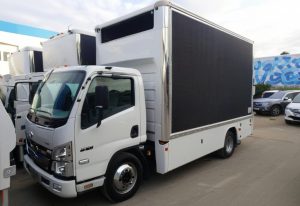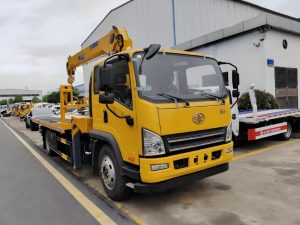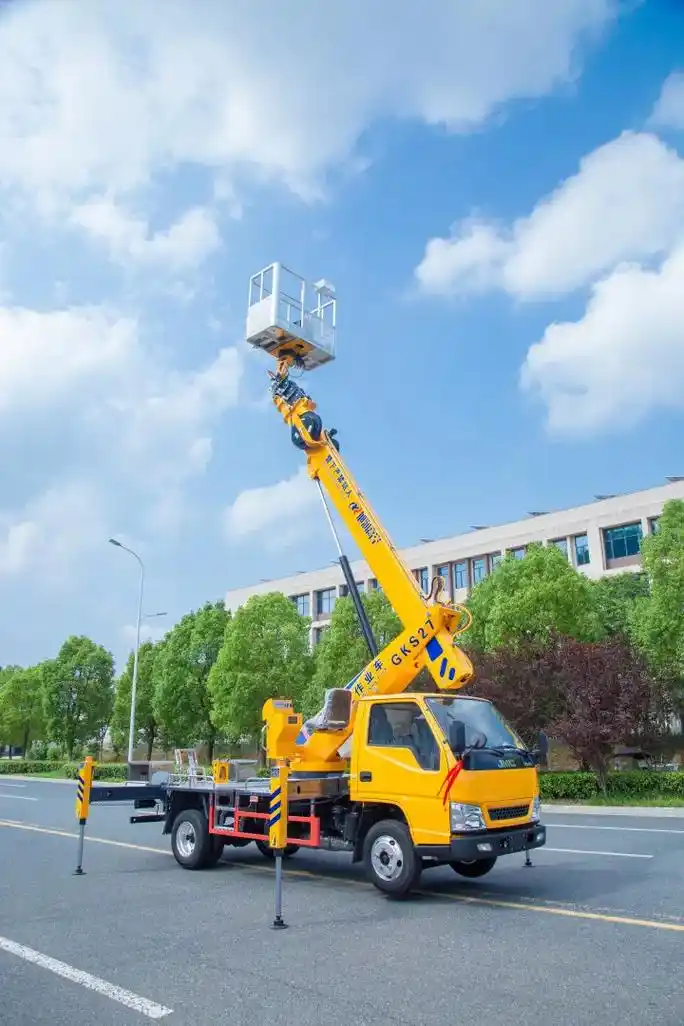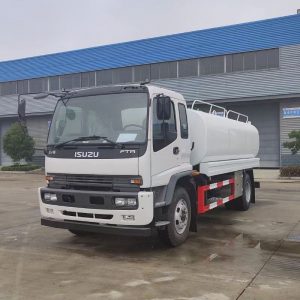Table of Contents
ToggleIntroduction
When you consider purchasing a fire truck, the process can be both exciting and somewhat complex. Whether you’re a fire department needing to update your equipment or an enthusiast looking to add a unique vehicle to your collection, this article will provide a comprehensive guide to help you make an informed decision.
Importance of Fire Trucks for Sale
Fire trucks are essential assets for any community, playing a crucial role in firefighting and rescue operations. They are equipped with various tools and technologies that enable firefighters to respond quickly and efficiently to emergencies. Having reliable fire trucks available for sale ensures that fire departments can maintain their fleet and continue to protect lives and property.
Main Reasons for Buying a Fire Truck
There are several reasons why someone might need to purchase a fire truck. For fire departments, it could be due to the need to replace old or damaged equipment, expand their fleet to cover growing communities, or upgrade to more advanced technology. For private buyers or collectors, a fire truck can be a unique addition to their collection, a showpiece for events, or even converted into a functional vehicle for other purposes.
Types of Fire Trucks
Understanding the different types of fire trucks available on the market is crucial when making a purchase decision. Each type of fire truck has its unique features and is designed for specific purposes.
Water Tanker Fire Trucks
Water tanker fire trucks are among the most common types of fire trucks. They are designed to carry large amounts of water to the scene of a fire, making them ideal for areas without easy access to water sources. These trucks typically come equipped with basic firefighting equipment such as hoses, pumps, and nozzles.
- Advantages: Water tanker fire trucks are versatile and can be used in various firefighting scenarios. They are especially useful in rural areas where water supply might be limited.
- Disadvantages: These trucks can be bulky and challenging to maneuver in tight urban spaces. Additionally, their primary function is limited to transporting water, which might not be sufficient for all types of emergencies.
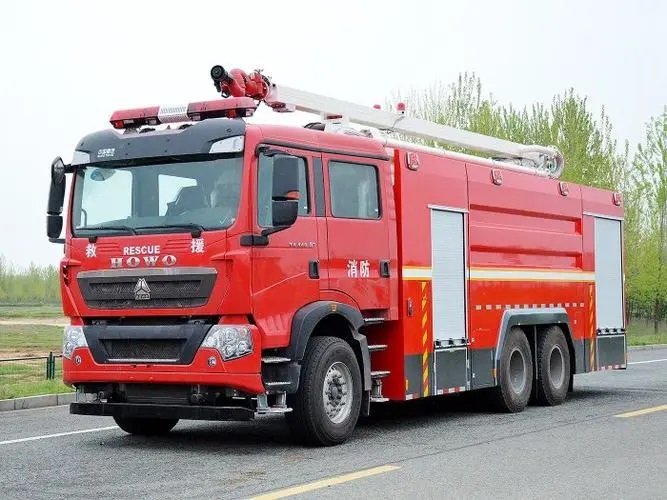
Ladder Fire Trucks
Ladder fire trucks, also known as aerial ladder trucks, are equipped with extendable ladders that allow firefighters to reach high places such as upper floors of buildings or trees. These trucks are essential for urban firefighting where high-rise buildings are common.
- Advantages: Ladder fire trucks provide access to elevated areas, making them indispensable for rescue operations in tall structures. They often come with additional equipment such as water pumps and hoses.
- Disadvantages: These trucks can be more expensive due to their specialized equipment. They also require skilled operators to handle the ladder safely.
Specialized Fire Trucks
Specialized fire trucks include a range of vehicles designed for specific types of emergencies. Examples include chemical fire trucks, airport rescue fire trucks, and wildland fire engines.
- Chemical Fire Trucks: Equipped with tools and materials to handle hazardous materials incidents.
- Airport Rescue Fire Trucks: Designed for rapid response in airport settings, often equipped with foam systems.
- Wildland Fire Engines: Built for rugged terrain and used in fighting forest fires.
- Advantages: Specialized fire trucks are tailored to handle specific emergencies effectively.
- Disadvantages: They can be costly and may not be versatile enough for general firefighting duties.
Considerations Before Purchasing a Fire Truck
Before making a purchase, it’s essential to consider several factors to ensure that the fire truck meets your needs and budget.
Budget
Your budget is one of the most critical factors in determining what type of fire truck you can afford. This includes not only the initial purchase price but also ongoing costs such as maintenance, fuel, and insurance.
- Initial Purchase Cost: New fire trucks can be quite expensive, often costing hundreds of thousands of dollars. Used fire trucks are generally more affordable but may require more maintenance.
- Maintenance Costs: Regular maintenance is essential to keep the fire truck in optimal condition. This includes routine inspections, part replacements, and repairs.
- Fuel Costs: Fire trucks consume a significant amount of fuel, especially during active firefighting operations.
- Insurance: Insuring a fire truck can be costly due to its specialized nature and the risks involved in firefighting.
Needs Analysis
Conducting a thorough needs analysis helps determine what type of fire truck will best suit your requirements.
- Type of Emergencies: Consider the types of emergencies you most frequently respond to. For example, if you primarily deal with urban fires, a ladder truck might be more suitable.
- Geographical Area: The terrain and infrastructure of your area will influence your choice. Rural areas might benefit more from water tanker trucks, while urban areas might need ladder or pumper trucks.
- Fleet Composition: Assess your current fleet and identify any gaps or outdated equipment that needs replacement or supplementation.
Brand and Model Selection
The market offers a wide range of brands and models, each with its strengths and weaknesses. Researching these options will help you make an informed decision.
- Reputation: Look for brands with a strong reputation for reliability and performance. Customer reviews and industry awards can provide valuable insights.
- Features: Consider what features are most important to you, such as pump capacity, storage compartments, or advanced technology.
- Resale Value: Some brands retain their value better than others. If you plan to resell the truck in the future, this is an important consideration.
New vs Used Fire Trucks
Deciding between a new or used fire truck involves weighing the pros and cons of each option.
Pros and Cons of New Fire Trucks
Pros:
- Latest Technology: New fire trucks come equipped with the latest technology, which can improve efficiency and safety.
- Reliability: With no previous wear and tear, new trucks are less likely to experience mechanical issues.
- Warranty: Most new fire trucks come with a manufacturer’s warranty, providing peace of mind regarding potential repairs.
Cons:
- High Cost: New fire trucks are significantly more expensive than used ones.
- Depreciation: Like all vehicles, new fire trucks depreciate in value over time.
Pros and Cons of Used Fire Trucks
Pros:
- Lower Cost: Used fire trucks are more affordable, making them an attractive option for departments with limited budgets.
- Availability: There is often a wide selection of used fire trucks available on the market.
Cons:
- Potential Issues: Used vehicles may have hidden issues that require costly repairs.
- Limited Warranty: Used fire trucks may not come with a warranty or have limited coverage.
How to Inspect a Fire Truck’s Condition
Before finalizing your purchase, it’s crucial to thoroughly inspect the fire truck’s condition. This includes checking mechanical parts, electrical systems, and both exterior and interior conditions.
Mechanical Parts
Inspecting the mechanical components ensures that the fire truck operates efficiently and safely.
- Engine: Check for any signs of oil leaks or unusual noises. The engine should start smoothly without excessive smoke.
- Transmission: Ensure that the transmission shifts smoothly without any delays or slipping.
- Brakes: Test the brakes for responsiveness and check for any signs of wear or damage.
Electrical Systems
The electrical systems are vital for the functionality of lights, sirens, communication equipment, and other critical components.
- Lighting Systems: Ensure all lights are operational, including headlights, taillights, emergency lights, and interior lights.
- Sirens and Alarms: Test sirens and alarms to confirm they work correctly without any faults.
- Communication Equipment: Verify that radios and other communication devices are functional.
Exterior and Interior
A thorough inspection of both the exterior and interior helps identify any cosmetic or structural issues that may need attention.
- Exterior Condition: Look for any dents, rust, or damage to the bodywork. Check that all doors open and close properly.
- Interior Condition: Inspect seats, dashboard, control panels, and other interior elements for wear and tear or damage. Ensure that all controls are accessible and functional.
Reliable Sales Channels
Choosing reliable sales channels can help you find high-quality fire trucks while avoiding scams or problematic vehicles.
Official Dealers
Official dealers typically offer new vehicles with warranties and provide after-sales services.
- Advantages: Peace of mind with warranty coverage and professional customer service.
- Disadvantages: Higher prices compared to other channels.
Online Marketplaces
Online marketplaces like eBay or Craigslist offer a wide range of options but require careful vetting of sellers.
- Advantages: Extensive selection and competitive prices.
- Disadvantages: Higher risk of scams or purchasing vehicles with undisclosed issues.
Auctions
Auctions can be an excellent way to find deals on both new and used fire trucks. Government auctions often have well-maintained vehicles at reasonable prices.
- Advantages: Potentially lower prices and access to unique vehicles.
- Disadvantages: Limited opportunity for pre-purchase inspection and potential bidding competition.
Purchasing a Fire Truck: The Process
Understanding the process of purchasing a fire truck can make the entire experience smoother and more efficient. From initial research to final delivery, knowing what steps to take will ensure you make a well-informed decision.
Preliminary Research
Before you start contacting sellers, it’s crucial to gather as much information as possible. This includes understanding the different types of fire trucks, their features, and the market prices.
- Market Analysis: Look into current market trends, average prices for new and used fire trucks, and popular models.
- Reviews and Testimonials: Read reviews from other buyers and testimonials to get an idea of which brands and models are reliable.
- Consult Experts: If possible, consult with experts in the field. This could be experienced firefighters, mechanics, or sales professionals who specialize in emergency vehicles.
On-Site Inspection
Once you have shortlisted potential fire trucks, the next step is to conduct an on-site inspection. This allows you to verify the condition of the truck and ensure it meets your requirements.
- Mechanical Check: As mentioned earlier, thoroughly inspect the mechanical parts, including the engine, transmission, and brakes.
- Operational Test: Conduct an operational test to ensure all systems are functional. This includes testing the water pumps, ladders, and any specialized equipment.
- Documentation: Verify that all necessary documentation is available. This includes maintenance records, inspection reports, and any warranties or guarantees.
Negotiation and Purchase Agreement
After completing the inspection and deciding on a particular fire truck, the next step is negotiation and finalizing the purchase agreement.
- Price Negotiation: Don’t hesitate to negotiate the price. Use the information gathered during your research to justify your offer.
- Purchase Agreement: Ensure that all terms and conditions are clearly outlined in the purchase agreement. This includes payment terms, delivery schedule, and any warranties or after-sales services.
- Payment Methods: Discuss and agree on the payment method. Options may include lump-sum payments, financing plans, or leasing options.
Delivery and Final Inspection
Once the purchase agreement is signed, arrange for the delivery of the fire truck. Upon delivery, conduct a final inspection to ensure everything is in order.
- Transport Arrangements: Depending on the location of the seller, you may need to arrange for transportation of the fire truck.
- Final Inspection: Conduct a final inspection upon delivery to confirm that the vehicle is in the promised condition and all agreed-upon features are present.
- Training: If necessary, arrange for training sessions for your team to familiarize themselves with the new equipment and features of the fire truck.
Maintenance and Care
Owning a fire truck comes with ongoing responsibilities. Proper maintenance and care are crucial for ensuring the vehicle’s longevity and operational efficiency.
Regular Inspections
Regular inspections are essential for identifying potential issues before they become major problems.
- Scheduled Maintenance: Follow a strict maintenance schedule as recommended by the manufacturer. This includes oil changes, filter replacements, and other routine tasks.
- Annual Inspections: Conduct comprehensive annual inspections covering all major systems and components.
- Record Keeping: Maintain detailed records of all inspections, maintenance activities, and repairs. This helps in tracking the vehicle’s condition over time.
Parts Replacement
Over time, certain parts of the fire truck will wear out and need replacement. Keeping an inventory of essential spare parts can minimize downtime.
- Common Parts: Stock common replacement parts such as hoses, belts, filters, and gaskets.
- Vendor Relationships: Establish relationships with reliable vendors for sourcing high-quality parts quickly.
- Budgeting: Allocate a budget for parts replacement as part of your overall maintenance plan.
Emergency Repairs
Despite regular maintenance, emergencies can still occur. Being prepared for emergency repairs can help you respond quickly and minimize disruptions.
- Tool Kits: Keep a well-equipped tool kit on board for addressing minor issues on the spot.
- Training: Ensure that your team is trained in basic repair techniques for common problems.
- Emergency Contacts: Have a list of emergency contacts for specialized repair services that can provide immediate assistance if needed.
Cost Considerations
When purchasing a fire truck, it’s essential to consider not only the initial cost but also the long-term financial implications.
Initial Purchase Cost
The initial purchase cost includes not just the price of the fire truck but also any additional equipment or modifications required.
- Base Price: The base price of the fire truck can vary significantly depending on its type, age, and condition.
- Additional Equipment: Factor in the cost of any additional equipment you may need, such as extra hoses, nozzles, or specialized tools.
- Modifications: If you require any custom modifications to suit your specific needs, include these costs in your budget.
Operating Costs
Operating costs are an ongoing expense that includes fuel, insurance, maintenance, and repairs.
- Fuel Costs: Fire trucks are heavy vehicles that consume a significant amount of fuel. Budget accordingly based on your expected usage.
- Insurance: Insurance premiums for fire trucks can be high due to their specialized nature and the risks involved in firefighting.
- Maintenance: Regular maintenance is essential for keeping the vehicle in optimal condition. Include routine inspections, part replacements, and emergency repairs in your budget.
- Training: Ongoing training for your team is crucial for ensuring they can operate and maintain the fire truck effectively. Allocate funds for training sessions and materials.
Long-Term Investment
Purchasing a fire truck is a long-term investment that can yield significant returns in terms of operational efficiency and community safety.
- Resale Value: Some fire trucks retain their value better than others. Consider this if you plan to resell the vehicle in the future.
- Operational Efficiency: A well-maintained fire truck can improve response times and effectiveness in emergencies, potentially saving lives and property.
- Community Impact: Investing in high-quality firefighting equipment enhances community safety and trust in your fire department’s capabilities.
Conclusion
In conclusion, purchasing a fire truck involves careful consideration of various factors including budget, needs analysis, inspection procedures, reliable sales channels, and ongoing maintenance. Whether you choose a new or used fire truck, thorough research and planning are essential for making an informed decision. By following this comprehensive guide, you’ll be well-equipped to navigate the complexities of buying a fire truck and ensure that it serves your needs effectively for years to come.
Remember, owning a fire truck is not just about having a vehicle; it’s about having a reliable partner in your mission to protect lives and property. Make sure to invest wisely, maintain diligently, and operate efficiently to get the most out of your purchase.


